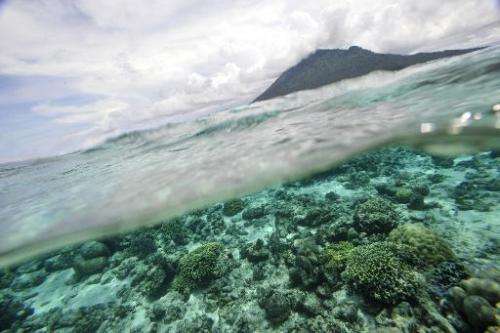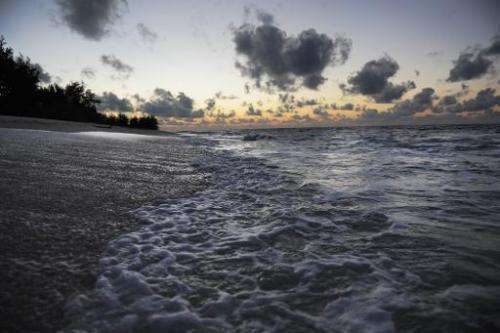Ocean rescue plan has urgent five-year deadline to act: report

The world's oceans need saving from pollution and overfishing, and an independent panel warned Tuesday that urgent action was needed within five years.
The Global Ocean Commission said cutting down on single-use plastics products, restricting fishing on the high seas, and establishing binding regulations for offshore oil and gas exploration are key parts of the rescue plan.
In all, the former heads of state and business leaders offered eight proposals for ocean health in their report, "From Decline to Recovery – A Rescue Package for the Global Ocean."
"The ocean provides 50 percent of our oxygen and fixes 25 percent of global carbon emissions. Our food chain begins in that 70 percent of the planet," said Jose Maria Figueres, co-chair of the commission and a former president of Costa Rica.
"Unless we turn the tide on ocean decline within five years, the international community should consider turning the high seas into an off-limits regeneration zone until its condition is restored."
The plan called for an immediate cap on government subsidies for fishing on the high seas, and an end to them within five years.
Since only 10 nations engage in high seas fishing, the move that would primarily affect the United States, European Union China and Japan, which are the biggest spenders.

"About 60 percent of such subsidies directly encourage unsustainable practices, and without them, high seas fisheries would not be financially viable," said the report.
The high seas are the waters that fall beyond the national jurisdiction of countries, making up 64 percent of the ocean's total surface area and half the biological productivity of the entire ocean, according to the report.
The commission said the lack of jurisdiction over these waters is a big problem, and called for a new agreement to be negotiated under the UN Convention on the Law of the Sea (UNCLOS).
Such an accord should make ocean health a priority, protect the high seas from wasteful exploitation and allow for the establishment of marine protected areas.
"The high seas are like a failed state. Poor governance and the absence of policing and management mean valuable resources are unprotected or being squandered," said David Miliband, co-chair of the commission and former British foreign secretary.
"The high seas belong to us all. We know what needs to be done but we can't do it alone. A joint mission must be our priority."
The commission also called for mandatory tracking of all vessels fishing on the high seas, measures to end plastics pollution, and binding standards for the regulation and control of offshore oil and gas exploration and exploitation.
The Global Ocean Commission was launched in February 2013 to address the threats facing the global ocean, and originated as an initiative of the Pew Charitable Trusts.
© 2014 AFP





















